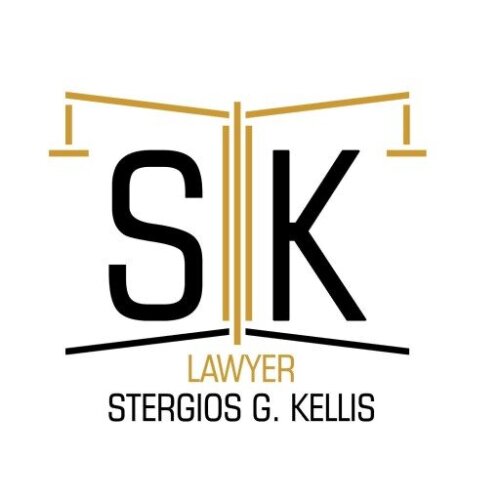Best Merger & Acquisition Lawyers in Xanthi
Share your needs with us, get contacted by law firms.
Free. Takes 2 min.
List of the best lawyers in Xanthi, Greece
About Merger & Acquisition Law in Xanthi, Greece
Merger and acquisition - M&A - activity in Xanthi follows national Greek corporate, commercial, tax and competition law, applied in the local context. Xanthi is part of the national legal framework, so the same basic rules that apply in Athens and other Greek cities will apply in Xanthi. Local courts, notaries and administrative offices in Xanthi handle filing, registration and certain approvals. M&A transactions can range from small asset purchases and share sales involving local businesses to larger cross-border deals that require coordination with central regulators in Athens.
Because Greek law combines civil and commercial elements and often requires formalities such as notarial deeds, shareholder meetings and registry filings, legal advice is essential to manage procedural requirements and to reduce the risk of post-closing liability.
Why You May Need a Lawyer
Engaging a lawyer experienced in M&A is important in many common situations:
- Structuring the deal: A lawyer advises on whether to buy assets, shares or use a merger, and on tax and liability consequences for each structure.
- Due diligence: Lawyers coordinate legal, tax, employment and regulatory due diligence to identify liabilities, contracts, property titles and pending disputes.
- Negotiating and drafting documents: Lawyers prepare letters of intent, confidentiality agreements, share purchase agreements, asset purchase agreements, merger plans and ancillary documents that allocate risk.
- Regulatory clearance: If the deal triggers competition thresholds or involves regulated sectors, lawyers handle filings with the Hellenic Competition Commission and sector regulators, or obtain necessary approvals.
- Employment and pensions: Lawyers advise on employee transfer rules, collective bargaining obligations and redundancy processes under Greek employment law.
- Closing and post-closing: Lawyers ensure conditions precedent are satisfied, closing mechanics are correctly executed, required filings are made with the General Commercial Registry and integration issues are addressed.
Local Laws Overview
Key legal areas and local requirements relevant to M&A in Xanthi include:
- Corporate law - Greek company law governs the transfer of shares, mergers, demergers and the required corporate approvals. Different rules apply to public limited companies and limited liability companies, including required majorities at shareholder meetings and special notarial formalities.
- Commercial registry - Transactions that change company structure, management or ownership are registered at the General Commercial Registry - GEMI. Registration produces legal effects against third parties in many cases.
- Competition law - Concentrations that meet national or EU thresholds require notification to the Hellenic Competition Commission for merger control review. Early legal evaluation of reporting thresholds is important to avoid fines or unwinding risks.
- Tax law - Purchase structuring has direct tax consequences - transfer taxes, VAT in certain cases, corporate income tax and deferred tax considerations. Tax rulings may be requested in some cases, and tax clearance certificates can be required for certain transactions.
- Employment law - When a business or part of a business is transferred, employees may transfer automatically under Greek employment rules. Collective agreements, severance rules and consultation obligations must be managed carefully.
- Real estate law - Transfers of property used by the target require accurate title searches, clearance of mortgages and local land registry (cadastre) filings. Local permits and zoning restrictions should be checked in Xanthi municipality.
- Sector-specific regulation - Transactions in banking, insurance, energy, telecommunications, transport, pharmaceuticals and defence often require additional approvals from sector regulators. Regulated activities may involve licensing transfers or new license applications.
- Notarial and documentary formalities - Certain corporate acts and share transfers require notarisation by a Greek notary public and sometimes translations into Greek for filing purposes.
- Cross-border considerations - For cross-border M&A, Greek choice-of-law rules, EU rules on company mobility and foreign investment review mechanisms may apply. Foreign investor approvals can be relevant in sensitive sectors.
Frequently Asked Questions
What is the difference between buying shares and buying assets of a company?
Buying shares transfers ownership of the legal entity with all its assets and liabilities - both known and unknown - unless warranties or indemnities are provided. Buying assets allows a buyer to select specific assets and liabilities to acquire, potentially reducing exposure to historic liabilities, but may require third-party consents and lead to tax or employment consequences. A lawyer helps weigh these trade-offs given the particular target and sector.
How long does an M&A transaction in Xanthi typically take?
Timelines vary widely. A small asset sale may close in a few weeks if there are no complex approvals. A share sale with due diligence and negotiation commonly takes two to four months. Large or regulated transactions requiring competition clearance or sector approvals can take six months or longer. Timelines depend on the scope of due diligence, complexity of issues and speed of regulatory bodies.
Do I need to register the transaction locally in Xanthi?
Yes - changes in company management, share capital, or legal form must be filed with the General Commercial Registry. Real estate transfers must be recorded at the local land registry or cadastre. Your lawyer will prepare and make the necessary filings in Xanthi and to national registries where required.
Will employees automatically transfer with the business?
In many business transfers, employees assigned to the transferred undertaking or business unit transfer automatically under Greek employment law. This usually preserves their contract terms and accrued rights. However, procedural obligations exist - such as employee information and consultation - and these must be managed properly to avoid disputes.
When is competition clearance required?
Competition clearance is required when the transaction meets national or EU turnover or market share thresholds for concentrations. If thresholds are met, a filing to the Hellenic Competition Commission must be made before closing. Failure to notify when required can result in fines and remedies. Early assessment is essential.
What warranties and indemnities should I expect in a share purchase agreement?
Warranties typically cover corporate status, ownership of assets, compliance with laws, tax matters, litigation, real estate, contracts and employment. Indemnities are used for known or quantifiable risks such as tax liabilities or environmental remediation. The scope, duration and caps on liability are negotiated based on risk allocation between buyer and seller.
How are taxes handled in an M&A transaction?
Tax treatment depends on structure. Asset purchases can trigger transfer taxes, VAT and taxable gains for the seller. Share sales may be taxed differently and can be more tax-efficient in some circumstances. Sellers and buyers consider corporate tax, stamp duties, VAT, real estate taxes and potential tax clearance requirements. A tax specialist should be involved early.
Can a foreign buyer acquire a business in Xanthi?
Yes, foreign buyers can acquire businesses in Xanthi. Certain sectors may impose restrictions or require notification to a national authority. Cross-border transactions may trigger additional compliance with EU regulations. Local counsel can advise on any special approvals and assist with language and procedural requirements.
What role does a notary play in M&A transactions in Greece?
Notaries in Greece are often required for formalising certain corporate acts, share transfers of specific company types and transactions involving real estate or changes in company articles. The notary prepares or certifies documents and may supervise signature formalities. Notarial fees and requirements should be anticipated.
How much will legal services for an M&A cost in Xanthi?
Legal fees vary by complexity and scope. Small local transactions may be billed on a flat fee or hourly basis and can be comparatively modest. Large deals with full-scope due diligence, negotiation and regulatory filings will cost more and may include retainers, hourly rates and success fees. Ask prospective lawyers for a clear fee estimate and billing structure before engagement.
Additional Resources
Useful institutions and resources to consult when pursuing M&A in Xanthi include:
- General Commercial Registry - the national registry for company filings and registration requirements.
- Hellenic Competition Commission - for merger control notifications and guidance on competition law issues.
- Independent Authority for Public Revenue - for tax rules, procedures and potential rulings affecting transaction tax treatment.
- Hellenic Capital Market Commission - if the transaction involves listed companies or public offers.
- Sector regulators - for regulated industries such as the Bank of Greece, the Hellenic Financial Supervisory Authorities, the Energy Regulatory Authority and telecommunications regulators.
- Xanthi Chamber of Commerce - for local business information and contacts.
- Local Bar Association and Xanthi lawyers - for locating qualified M&A counsel and notarial services in the Xanthi area.
Next Steps
If you need legal assistance with an M&A matter in Xanthi, consider the following practical steps:
- Prepare preliminary information - assemble basic documents about the target business, including corporate documents, recent financial statements, major contracts and property information.
- Seek an initial consultation - meet with a lawyer who has M&A and Greek corporate experience to discuss objectives, constraints and likely structures.
- Agree on scope and fees - ask for a written engagement letter that defines tasks, timelines and fee arrangements, including any expected third-party costs.
- Conduct targeted due diligence - start with a focused review to identify material legal risks that would influence deal structure or price.
- Negotiate and document key terms - work with your lawyer to prepare letters of intent, confidentiality agreements and draft transaction documents that allocate risks appropriately.
- Plan for approvals and filings - identify required regulatory clearances, notarial formalities and registry filings and calendar them into the transaction timeline.
- Close and integrate - follow the lawyer's guidance on closing mechanics, payment arrangements and post-closing integration, including registrations, notifications and employee matters.
Working with local counsel in Xanthi who understands national law and local practice will reduce surprises and help ensure a smoother transaction. If the deal has international elements, consider coordinating Greek counsel with foreign advisors to cover cross-border legal, tax and regulatory issues.
Lawzana helps you find the best lawyers and law firms in Xanthi through a curated and pre-screened list of qualified legal professionals. Our platform offers rankings and detailed profiles of attorneys and law firms, allowing you to compare based on practice areas, including Merger & Acquisition, experience, and client feedback.
Each profile includes a description of the firm's areas of practice, client reviews, team members and partners, year of establishment, spoken languages, office locations, contact information, social media presence, and any published articles or resources. Most firms on our platform speak English and are experienced in both local and international legal matters.
Get a quote from top-rated law firms in Xanthi, Greece — quickly, securely, and without unnecessary hassle.
Disclaimer:
The information provided on this page is for general informational purposes only and does not constitute legal advice. While we strive to ensure the accuracy and relevance of the content, legal information may change over time, and interpretations of the law can vary. You should always consult with a qualified legal professional for advice specific to your situation.
We disclaim all liability for actions taken or not taken based on the content of this page. If you believe any information is incorrect or outdated, please contact us, and we will review and update it where appropriate.












